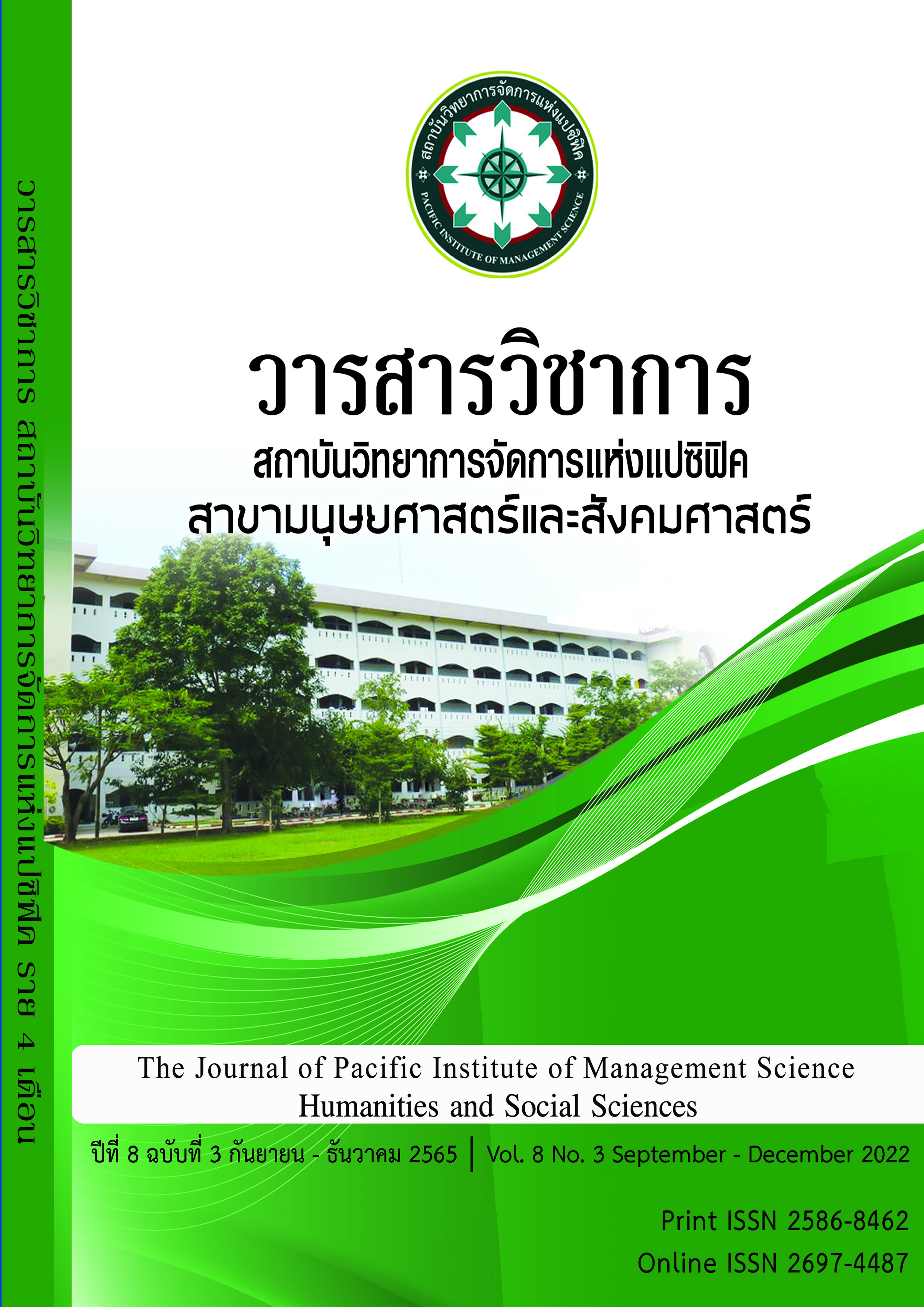Legal Measures to protect chidren’s personal information from publishing photos and videos on social media
Keywords:
the child age criteria, the child’s data type, the dissemination of children’s photosAbstract
At present, the development of technology, communication technology and information technology have progressed rapidly. They're precipitated into an interrelated context on Network Economy. They adapt and move quickly like no borders. Especially when using the internet which is an international network caused by many small networks, united in one global network. It's important and relevant to daily life. Make personal privacy less like never before. Specifically neglecting the privacy of child may be the cause of the children or youth feel insecure or create embarrassment in the future. The propagation of photos from birth and daily life by the family who without thinking about the consequences later. Using a smart phone or applications in various conversations, not just photos but also includes the child's birthday, name, address, location, and daily life which may collect, store, use or distribute personal data by service providers in electronic data. Therefore, the child's maturity and minimum age should be considered for the main purpose of protect personal information from the use of internet by child.
In addition, Personal Data Protection Act B.E. 2562 Section 20 has set the age limit of children or minors under Section 27 of the Civil and Commercial Code, doing any legal transaction just to gain rights or retire from duty which is a juristic act that is unilaterally favorable to child. The above limitations are for juridical act only. By Section 20 (2), in the case where a child under the age of 10 must obtain the consent of the user of parental power. It's an unwarranted limitation of the learning of the child. Besides the provisions of the law don't specifically classify the protection of child' personal data even though they are a group with high internet usage compared to people in the other age group.
From the study found that protection personal information from the use of internet by minors must considered minimum age on issues concerning the privacy of children which is important for everyone. There are different types of personal data of children stored by schools, such as personal data, fingerprints, academic data, punishment statistics, behavior, medical information, computer search history, house maps, e-mail addresses, IP addresses, or identifiable school schedules for child, etc. These may infringe upon important fundamental privacy right, information privacy which is the right to be alone and it is the right that the data owner has control over his or her information disclosure to others. This right extends to individuals, groups and organizations.
Suggestions from the study, the Personal Data Protection Act B.E. 2562 should be amended in legal measures related to child by establishing the definition of the term "child" under the condition of determining the minimum age of child. This includes obtaining user of parental power consent for the processing of child' personal data when accessing the website or internet system to protect the right to privacy. The minimum age requirement is not an exception that does require prior parental consent in all cases. Therefore, the age of child should be set at 16 years of age in order to be consistent with the technological evolution and intellectual development of the age. However, user of parental power are required to preserve important minors' personal information and must understand the information security. It's important for child to be aware of their privacy infringement and to prevent their personal information becoming to public information under the provisions of each law.
References
การประมวลผลข้อมูลส่วนบุคคลของผู้เยาว์ (ออนไลน์) เข้าถึงได้จาก: https://www.kaohoon.com/column/417779.
กรมยุโรป กระทรวงการต่างประเทศ. (2561). สหภาพยุโรป (The European Union - EU). (ออนไลน์). เข้าถึงได้จาก: http://www.mfa.go.th/europetouch/th/other/.
กระทรวงการต่างประเทศ. (2551). ปฏิญญาสากลว่าด้วยสิทธิมนุษยชน. (ออนไลน์). เข้าถึงได้จาก: http://humanrights.mfa.go.th/upload/pdf/udhr-th-en.pdf.
นรินทร์ จุ่มศรี. (2555). มาตรการทางกฎหมายในการคุ้มครองข้อมูลส่วนบุคคลจากการใช้บริการเครือข่ายสังคม วิทยานิพนธ์นิติศาสตรมหาบัณฑิต คณะนิติศาสตร์ปรีดี พนมยงค์ มหาวิทยาลัยธุรกิจ บัณฑิตย์.
ประมวลกฎหมายแพ่งและพาณิชย์ พ.ศ. 2561
พระราชบัญญัติข้อมูลข่าวสารของราชการ พ.ศ. 2540
พระราชบัญญัติคุ้มครองเด็ก พ.ศ. 2546
พระราชบัญญัติว่าด้วยการกระทำผิดเกี่ยวกับคอมพิวเตอร์ พ.ศ. 2550 แก้ไขเพิ่มเติม (ฉบับที่ 2) พ.ศ. 2560
พระราชบัญญัติคุ้มครองข้อมูลส่วนบุคคล พ.ศ. 2562
รัฐธรรมนูญแห่งราชอาณาจักรไทย พ.ศ. 2560
สัญญา วิริยะอมรพันธุ์. (2554). มาตรการทางกฎหมายในการคุ้มครองข้อมูลส่วนบุคคล: ในการทำธุรกรรมอิเล็กทรอนิกส์ของภาครัฐ. สารนิพนธ์นิติศาสตรมหาบัณฑิต คณะนิติศาสตร์ มหาวิทยาลัยกรุงเทพ.
สำนักงานปลัดกระทรวงดิจิทัลเพื่อเศรษฐกิจและสังคม. (2562). รู้จัก พ.ร.บ.คุ้มครองข้อมูลส่วนบุคคล. บทความวิชาการโครงสร้างร่างพระราชบัญญัติคุ้มครองข้อมูลส่วนบุคคล. กรุงเทพฯ: สำนักงานปลัดกระทรวงดิจิทัลเพื่อเศรษฐกิจและสังคม.
สำนักงานคณะกรรมการธุรกรรมทางอิเล็กทรอนิกส์. (2557). การคุ้มครองข้อมูลส่วนบุคคล (Data Privacy) ของหน่วยงานภาครัฐ. เอกสารบทความการคุ้มครองข้อมูลส่วนบุคคล. กรุงเทพฯ: สำนักงานคณะกรรมการธุรกรรมทางอิเล็กทรอนิกส์.
อธิพร สิทธิธีรรัตน์. (2558). ปัญหากฎหมายการคุ้มครองข้อมูลส่วนบุคคลในบริบทอิเล็กทรอนิกส์วิทยานิพนธ์นิติศาสตรมหาบัณฑิต สาขาการค้าระหว่างประเทศ คณะนิติศาสตร์ มหาวิทยาลัยธรรมศาสตร์.
A Rule by the Federal Trade Commission on. (01,17, 2013). Children's Online Privacy Protection Rule. (Online). เข้าถึงได้จาก:https://www.federalregister.gov/documents/2013/01/17/2012-31341/childrens-online-privacy-protection-rule.
Federal Trade Commmission. Xanga.com to Pay $1 Million for Violating Children's Online Privacy Protection Rule. Civil Penalty Against Social Networking Site Is Largest Ever for a COPPA Violation. (ไฟล์ FTC เลขที่ 062-3073; หมายเลข CIV. 06-CIV-6853(SHS)). (Online ). เข้าถึงได้จาก: https://www.ftc.gov/news-events/press-releases/2006/09/xangacom-pay-1-million-
Downloads
Published
Issue
Section
License
Copyright (c) 2022 Pacific Institute of Management Science

This work is licensed under a Creative Commons Attribution-NonCommercial-NoDerivatives 4.0 International License.
บทความที่ได้รับการตีพิมพ์เป็นลิขสิทธิ์ของ สถาบันวิทยาการจัดการแห่งแปซิฟิค
ข้อความที่ปรากฏในบทความแต่ละเรื่องในวารสารวิชาการเล่มนี้เป็นความคิดเห็นส่วนตัวของผู้เขียนแต่ละท่านไม่เกี่ยวข้องกับสถาบันวิทยาการจัดการแห่งแปซิฟิค และคณาจารย์ท่านอื่นๆในสถาบันฯ แต่อย่างใด ความรับผิดชอบองค์ประกอบทั้งหมดของบทความแต่ละเรื่องเป็นของผู้เขียนแต่ละท่าน หากมีความผิดพลาดใดๆ ผู้เขียนแต่ละท่านจะรับผิดชอบบทความของตนเองแต่ผู้เดียว







